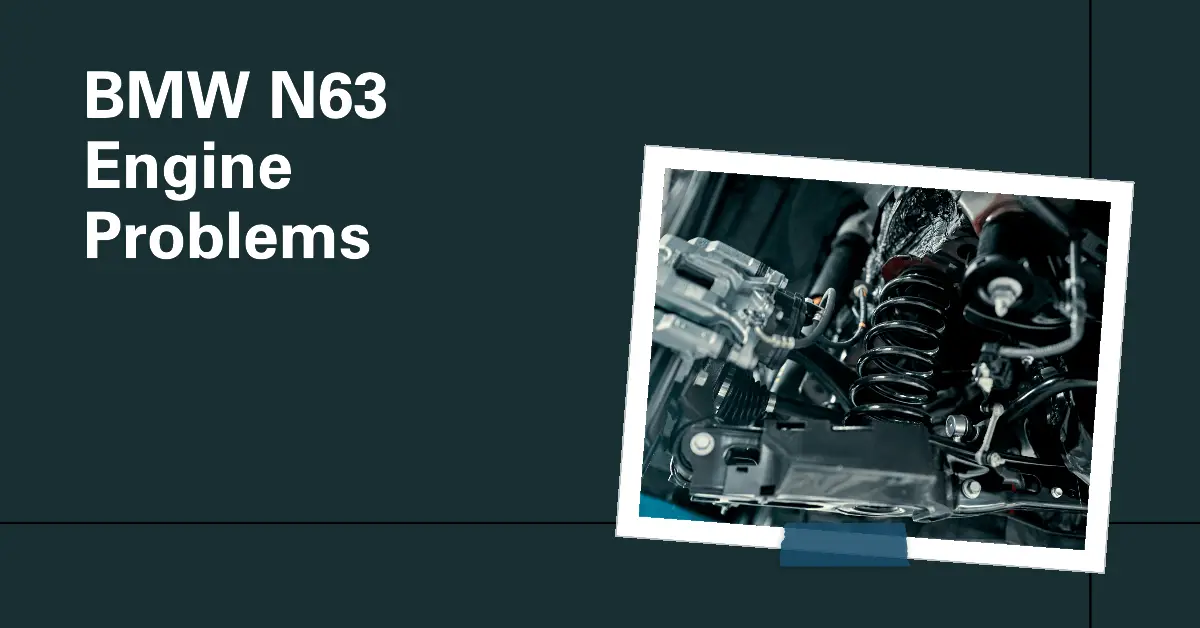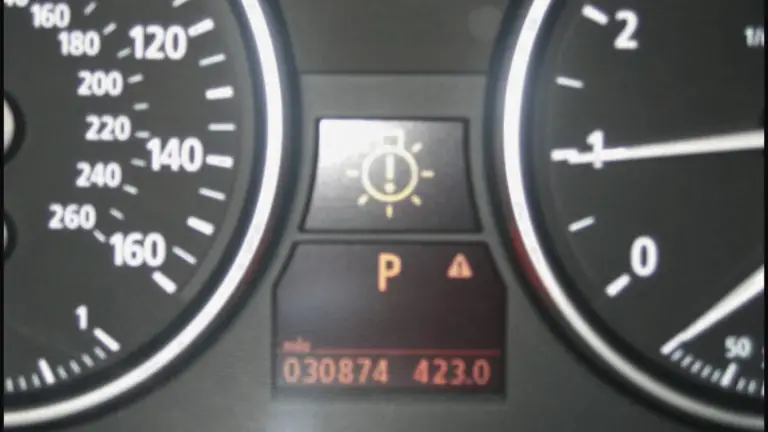Common BMW N63 Engine Problems (And How to Fix Them)
If you own a BMW with the 4.4-liter twin-turbo N63 V8 engine, you may have experienced some issues that can lead to expensive repairs. So what are the most common BMW N63 engine problems, and how can you fix them?
The N63 engine powers many BMW models including the 550i, 650i, 750i, X5, and X6 from 2008 to present. While these turbocharged V8 engines deliver outstanding power and performance, they have some inherent design flaws that can leave owners with hefty repair bills.
The main problem areas include oil leaks, premature timing chain wear, thermostat failure, excessive oil consumption, and carbon buildup.
In this detailed guide, we’ll cover:
- The major design flaws of the BMW N63 engine
- The top 5 most common N63 engine problems owners experience
- How much it costs to repair N63 issues
- DIY solutions and tips to fix N63 problems yourself
- Steps to proactively prevent issues from occurring
- Whether or not the N63 is reliable after all its problems
Gaining an understanding of the problematic areas of this engine can help you minimize downtime and avoid expensive repairs down the road. Let’s jump in and explore why BMW’s first mass-produced turbocharged V8 has faced so many challenges.
The Major Design Flaws Causing N63 Engine Problems
When BMW launched its first turbocharged V8 in 2008, it was plagued by several design flaws that have continued to cause problems requiring extensive repairs. Here are some of the main issues:
1. Weak Timing Chain System
The engine’s timing chain system is responsible for ensuring the engine’s valves open and close at precisely the right time. BMW used inferior plastic guides to support the timing chain system in the N63 engine. Over time, these plastic components wear down causing slack in the timing chain. This can lead to the chain jumping timing and catastrophic engine failure in severe cases. Replacing the worn timing chain guides is an extensive job.
2. Defective Crankcase Ventilation System
Blowby gases need to be vented from the N63’s crankcase to prevent pressure buildup. BMW fitted a faulty crankcase vent valve that commonly fails and clogs with sludge. This reduces ventilation leading to oil leaks and excess pressure causing gaskets and seals to fail.
3. Poorly Designed Oil Filter Housing Gasket
On the N63, engine oil is prone to leaking externally from the oil filter housing lid due to a poorly designed gasket that deteriorates. This oil filter housing gasket is a known weak spot that affects many N63 engines.
4. Problematic Thermostat
The engine coolant thermostat is responsible for regulating engine temperature. But BMW used a plastic thermostat housing prone to cracking and failure causing coolant leaks.
These inherent flaws in the components used in the N63 engine are directly responsible for many of the common problems that plague this motor leading to very expensive repairs, especially once out of warranty. Let’s look at the top issues N63 owners deal with.
The Most Common BMW N63 Engine Problems
While any complex twin-turbo engine will require diligent maintenance and have some failure points, the BMW N63 stands out for its high rate of recurring issues. Here are the top 5 problems that affect N63 engines based on frequency and repair costs:
1. Oil Leaks from a Failed Oil Filter Housing Gasket
One of the most prevalent issues on the BMW N63 is external oil leaks from a failed oil filter housing gasket. This gasket seals the joint between the oil filter housing lid and the engine block.
Due to its faulty design, the O-ring seal tends to harden and shrink over time. As the gasket deteriorates, engine oil escapes externally through the seal leading to messy leaks.
The oil will typically drip down the front of the engine around the oil filter housing. Leaks usually start slowly at first. But if left unattended, the dripping can turn into copious streams of motor oil.
Replacing the oil filter housing gasket requires removing and resealing the oil filter housing lid. While accessible from the top of the engine, it still takes a DIY’er 2-3 hours or a shop around $500-$900 including parts and labor. Use a quality OE or aftermarket gasket made of Viton rubber material when replacing the oil filter housing gasket.
2. Timing Chain Wear Causing Rattle on Cold Start
The next common issue on N63 engines relates to the timing chain system covered earlier. As the plastic timing chain guides gradually wear down, slack develops in the chain. This causes a loud rattling or knocking noise for 1-2 seconds on initial cold startups as the slack is taken up.
If the worn guides and loose chain are not addressed, the timing chain will eventually jump timing causing piston and valve damage. In severe cases of timing chain guide failure, the engine may not start as the camshaft timing is off.
Replacing the N63’s timing chains, guides, and tensioners can cost $2,000-$4,000 at a shop. While not a small job, it’s highly recommended to restore proper timing function and prevent further damage. Use updated replacement parts not prone to the same premature wear as the original plastic components.
3. Coolant Leaks from a Failed Thermostat Housing
As covered earlier, the factory plastic engine coolant thermostat housing on the N63 is prone to cracking and leaking coolant externally.
You may notice coolant pooling under the car when parked as the first symptom. Visually inspecting the thermostat housing located at the front of the engine may reveal hairline cracks in the plastic. Coolant leaks can lead to overheating.
Replacing the defective plastic thermostat housing with an updated metal housing will prevent further coolant leaks. The replacement job takes 1-2 hours and costs approximately $200-$400 in parts and labor.
4. Excessive Oil Consumption from Worn Piston Rings
Some N63 engines consume excessive amounts of oil due to worn piston rings. This issue is typically caused by inadequate engine break-in during the first 1,000 miles. The oil control piston rings do not properly seat leading to premature wear and blowby.
Excessive oil consumption is evident through having to frequently top up the oil level. You may also notice blue smoke from the exhaust. In severe cases, low oil levels can cause engine damage.
While adjustments to driving style may help, worn piston rings generally require a major engine overhaul to address. This involves removing and disassembling the engine to replace the pistons and rings. Labor and parts can cost upwards of $5,000 or more at a BMW specialist’s shop.
5. Carbon Buildup in Intake Valves from Direct Injection
Like other direct injection engines, the N63 is prone to carbon accumulation on the intake valves and ports over time. As fuel is sprayed directly into the combustion chambers and not through the intake ports, carbon deposits gradually build up restricting airflow.
Symptoms of intake valve carbon buildup include power loss, rough idle, engine misfires, and Check Engine warning lights pointing to fuel trim issues. Using quality oil and fuel, not overextending oil change intervals, and adding detergent additives can help reduce carbon buildup in the N63 engine.
In severe cases of restriction, the best remedy is having the intake valves walnut shell blasted or media blasted to remove heavy carbon deposits. This process requires removal of the cylinder heads and costs around $1,500 or more.
While all engines accumulate some carbon over their lifespan, the N63 seems particularly prone to heavy carbon buildup issues due its direct injection design. Staying on top of preventative maintenance is key.
So those are the top 5 problem areas to look out for on the BMW N63 twin-turbo V8 engine. Diagnosing issues early and addressing them promptly is recommended to avoid cascading and costly damage.
How Much Do N63 Engine Repairs and Maintenance Cost?
As you can see from some of the common issues above, BMW N63 engine repairs can get very expensive, especially once no longer covered by the 4 year/50,000 mile factory warranty.
Here are typical repair costs for some of the most common N63 problems:
- Oil filter housing gasket replacement – Labor 1-3 hours, parts around $100-$200, total cost $500-$900
- Timing chain system replacement – Labor 8-12 hours, parts $1,000-$2,000, total cost $2,000-$4,000
- Thermostat replacement – Labor 1-2 hours, parts around $150-$300, total cost $200-$400
- Worn piston rings/engine rebuild – Labor 30+ hours, parts $3,000+
- Intake valve cleaning – Labor 6-8 hours, total cost around $1,500
Regular maintenance is also critical on these engines. Here are typical maintenance costs:
- Oil change – $150-$200 for synthetic oil and filter
- Spark plug replacement – Labor 1-2 hours, parts $200, total cost $400-$600
- Inspection and repairs – $150-$200 per hour labor at an independent BMW specialty shop
As you can see, the twin-turbo N63 engine is not cheap to repair or maintain. Issues like worn piston rings requiring and engine rebuild can result in bills up to $10,000 or more.
Repairing N63 problems yourself rather than the dealer or shop can save thousands in labor costs. But some jobs like timing chains still require special tools. Thorough maintenance is absolutely vital for minimizing issues on these problematic motors.
How to Prevent Common BMW N63 Engine Problems?
While the N63 engine undoubtedly has some engineering flaws, you can take proactive steps to reduce issues and improve reliability:
- Use high quality full synthetic motor oil – Stick rigorously to BMW’s recommended oil change intervals of 10,000 miles or 1 year. Avoid overextending oil changes.
- Allow proper engine warm up – Limit hard acceleration and high revs until engine is fully warmed up to operating temperature. This reduces wear.
- Clean intake valves – Use quality fuel injector and induction system cleaners regularly to prevent excessive intake valve carbon buildup.
- Watch oil levels – Check oil level monthly and top up as needed. Burning oil leads to low levels between changes.
- Address leaks early – Have any external oil, coolant or fuel leaks repaired promptly before catastrophic failure occurs.
- Replace common failure parts – Be proactive about replacing parts like the thermostat, oil filter housing gasket, and timing chain guides once you observe early signs of wear and before total failure happens. This minimizes extensive damage.
- Use BMW specialty shop – Find a good independent BMW mechanic you trust for repairs and maintenance rather than the dealership which is expensive. They have experience specifically with N63 engines.
While you can’t entirely prevent problems on the inherently flawed N63, diligent maintenance and addressing issues promptly goes a long way to minimize headaches.
Is the BMW N63 Reliable?
Given the N63 engine’s reputation for expensive problems, is it reliable? The short answer is yes, with some big caveats.
When properly maintained and driven judiciously, the BMW N63 engine provides outstanding performance and longevity up to 150,000 miles or more. The key is addressing the N63’s problem areas proactively.
The N63 can be fairly reliable if you:
- Do not overload the engine while cold
- Stay on top of maintenance like oil changes
- Use quality fuel and oil
- Address leaks, consumption issues, and timing chain noise early
- Replace common failure parts preventatively
- Find a great BMW mechanic you trust
So despite its expensive flaws, the BMW N63 engine can be reliable in the long-term. But it requires diligent preventative maintenance and addressing problems before catastrophic failures happen.
Conclusion
The BMW N63 twin-turbo V8 engine remains a powerful, performance oriented engine with great tuning potential when operating properly. But several design flaws have proven problematic over its lifespan leading to very expensive repairs.
The most common N63 issues involve oil leaks, wearing timing chains, thermostat failures, excessive oil consumption from piston ring wear, and carbon buildup in the intake ports.
Repair costs can quickly total $5,000-$10,000 if major issues like worn piston rings or timing chain failure occur. Performing preventative maintenance and addressing problems promptly is key to reliability.
While the N63 has its flaws, it can still provide tens of thousands of miles of strong performance when properly maintained. Knowing the most common problems these engines face will help you minimize repairs and downtime.







